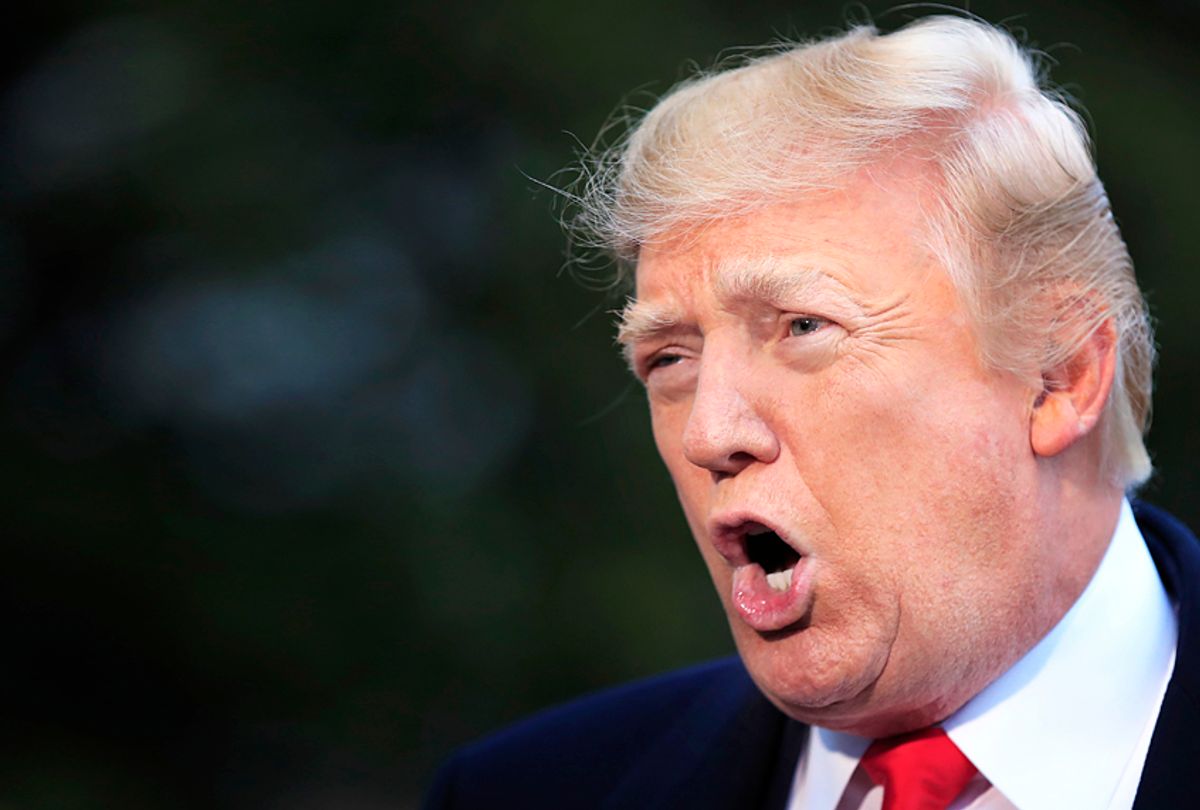President Donald Trump responded to concerns about his mental fitness following anecdotes from Michael Wolff’s book "Fire and Fury: Inside the Trump White House” on Twitter.
In a chain of tweets, he said that the “Fake News Media” was going after his mental health because they couldn’t prove the “total hoax” that is the “Russian collusion”—despite Robert Mueller’s special counsel still in progress. He continued to say that he’s a “very stable genius.”
In Wolff’s book, he details concerns about Trump’s mental health that have allegedly been shared among many of his closest advisers.
"Everybody was painfully aware of the increasing pace of his [Trump's] repetitions," Wolff wrote in a part of his book released earlier this week. "It used to be inside of 30 minutes he'd repeat, word-for-word and expression-for-expression, the same three stories — now it was within 10 minutes. Indeed, many of his tweets were the product of his repetitions — he just couldn't stop saying something."
Trump reportedly displayed more troubling behavior, such as attempting to “barricade himself” in his own bedroom. The book also alleges that Chief of Staff John Kelly admitted that he accepted the job of working for Trump, despite the president's uncontrollable nature, so that he could prevent the man from causing a catastrophe.
However, it’s not just the “fake news” and Michael Wolff who have raised concerns about Trump’s mental health recently. Following Trump’s threatening and dangerous tweets about North Korea and Trump's "nuclear button," Richard W. Painter—who served as an adviser to President George W. Bush—tweeted his own concerns about Trump’s psychological state, too.
Moreover, on Thursday, CNN reported that a dozen lawmakers from the Senate and House of Representatives had received a briefing by Dr. Brandy X. Lee, a Yale psychiatrist, about their concerns over Trump's mental fitness.
"Lawmakers were saying they have been very concerned about this — the president's dangerousness, the dangers that his mental instability poses on the nation,” Lee told CNN about the briefing.
The public concerns made by psychiatrists shouldn’t be taken lightly, considering the “GoldWater Rule” which calls on psychiatric professionals to not speak out about political figures who they haven't personally met, or for any psychiatric professional to diagnose any patient without a formal examination. Johns Hopkins University psychologist Dr. John Gartner told Salon in November that he felt that situation didn't apply to Trump though.
“The Goldwater rule is not an example of psychiatric ethics. It is an example of psychiatric corruption where they put the needs and the money of their profession above the welfare and the survival of the American public,” he told Salon.



Shares